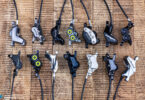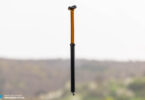First Look | MOJO Suspension Nicolai Geometron
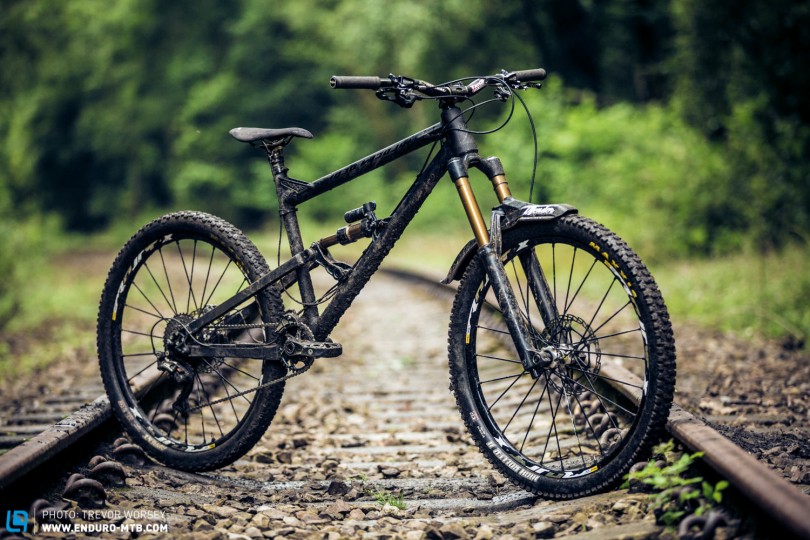
Chris Porter, Director of MOJO suspension has always done things a little differently. Gifted with an enquiring mind, Chris believed that bike design could be improved and began a quest that delved into the extreme reaches of geometry. Rather than follow convention he experimented with values that would normally be found in World Cup DH and transposed those onto a trail bike – reaching a conclusion that went against the grain.
While the bike industry took tentative steps towards a longer and slacker geometry, Chris took a giant leap with his exclusive Nicolai Geometron. Even though the numbers are extreme for a downhill bike, Chris is targeting this bike at the normal trail rider, but can a bike as extreme as this work on normal trails?
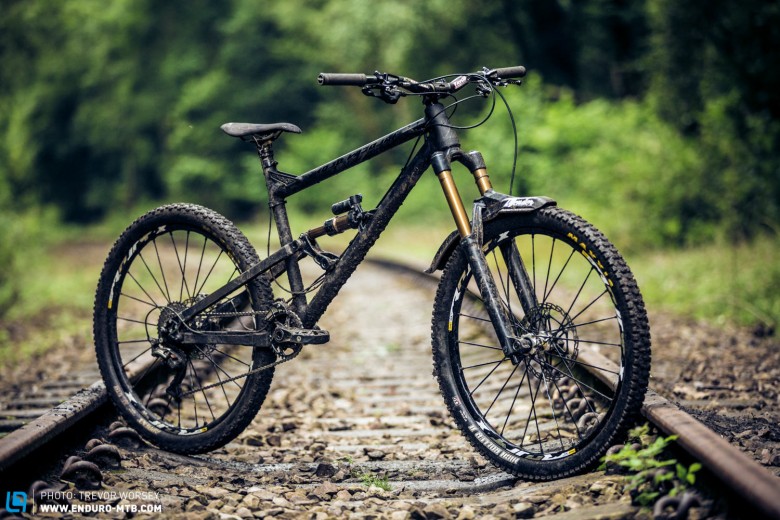
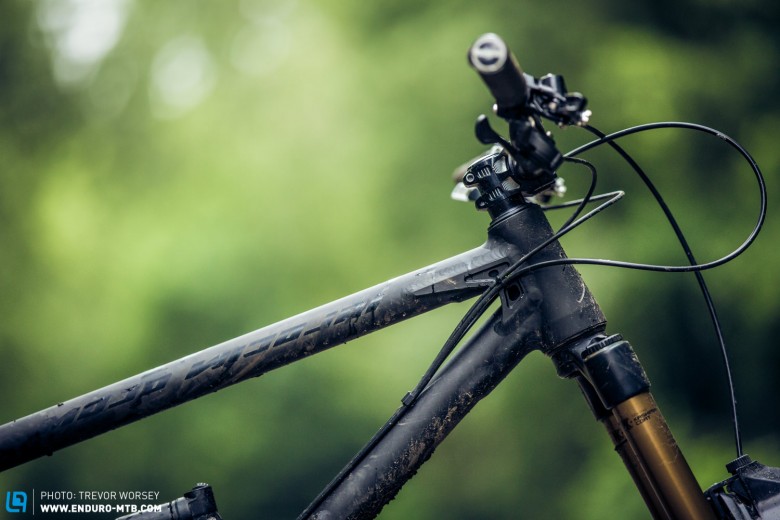
Chris has been quietly riding and experimenting with bikes featuring extreme geometry for a few years now, such as his custom Mondraker Dune and Nicolai Ion. After many years of testing on his local trails he is very confident that he had arrived at a bike that works well for all riders. Working with Nicolai he has released an exclusive frame featuring his own unique custom geometry; the Geometron. Calling this bike ‘long and slack’ is a huge understatement in conventional terms, and it has certainly caused quite a stir in the cycle industry. On paper then numbers look far too extreme to be any fun outside the DH track, but perhaps Chris is onto something? Our testers were sceptical, but very interested and jumped at the chance to test it; they were certainly in for a shock!
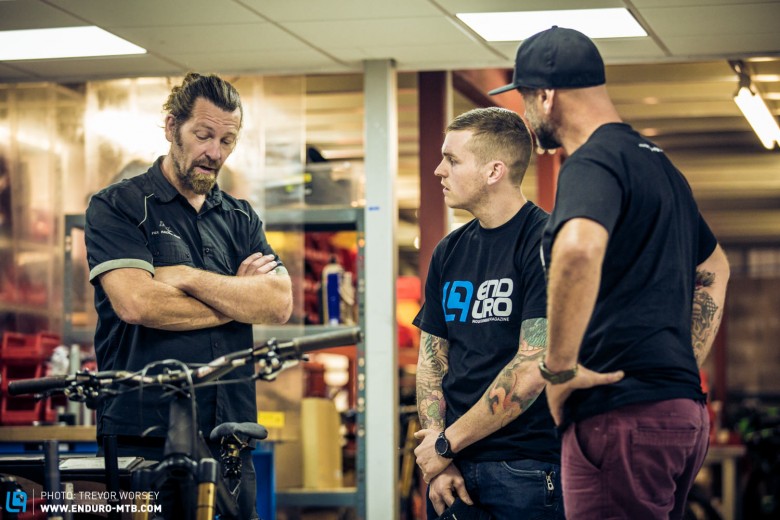
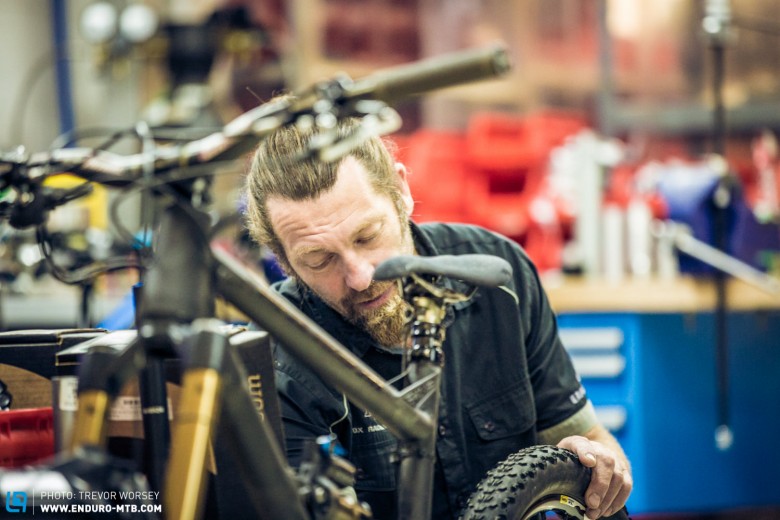
The Geometron comes in 3 different sizes, Long, Longer and Longest, and can be brought in a number of different packages from frame only to complete builds. The Mojo team offer a full test service, where you can test the bike with your own bars, pedals and saddle for a direct comparison with your own bike, after getting a full suspension setup. This level of attention does not come cheap, and at £5900, it’s certainly an expensive bike. We were testing the Longer version, (our testers are 173 cm and 178 cm tall) with a whopping 500mm reach, 63.5 degree head angle and steep 77 degree seat angle; some pretty intimidating numbers.
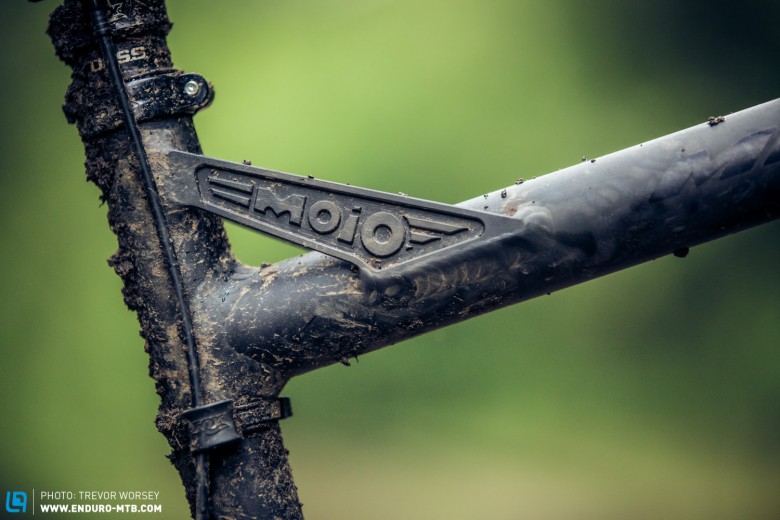
The full bike has an impressive specification with Hope’s new cranks, X2 disc brakes and a short 35mm stem. Chris recommends the 2 pot caliper over the 4 pot, as they are more reliable and predictable. Mojo includes the Mavic Crossmax XL wheelset which also comes with their MP3 aftercare package. As the main UK FOX specialists, it’s no surprise to see the Geometron shod with many Fox components, including the Doss Dropper post and the super smooth 180mm Fox 36 RC2. The bike also comes with a few optional extras, such as an extra set of Mavic’s lightweight Crossmax SL wheelset for long XC riders or marathons, again demonstrating the wide range of applications of the bike.
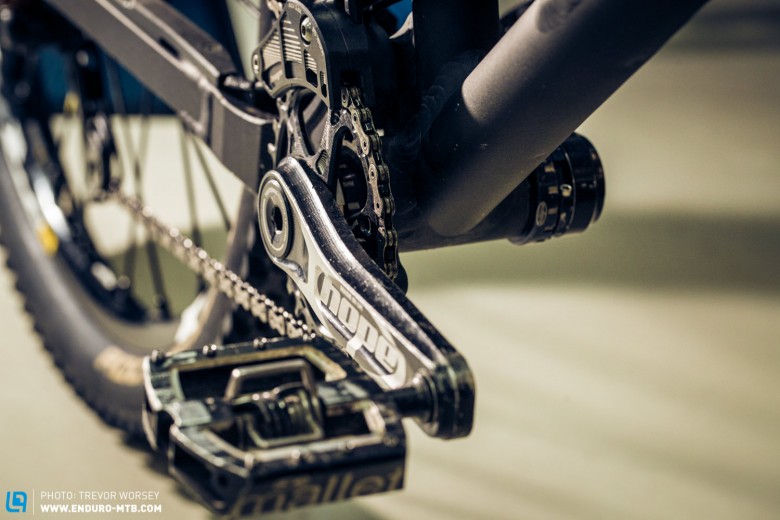
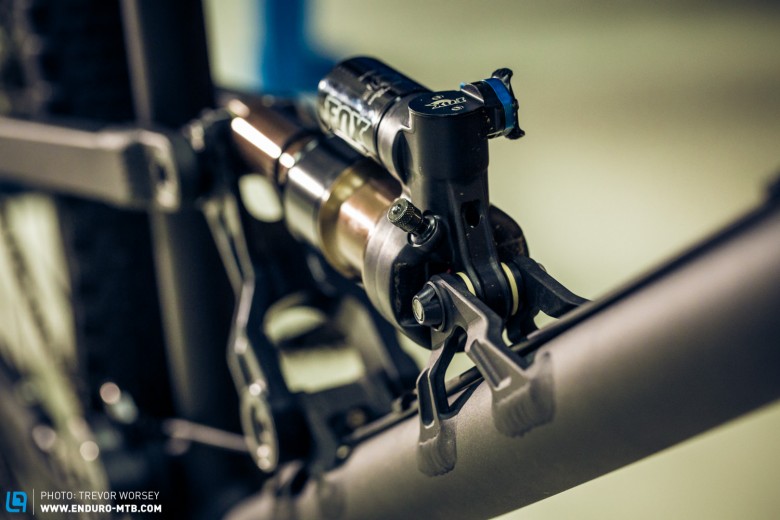
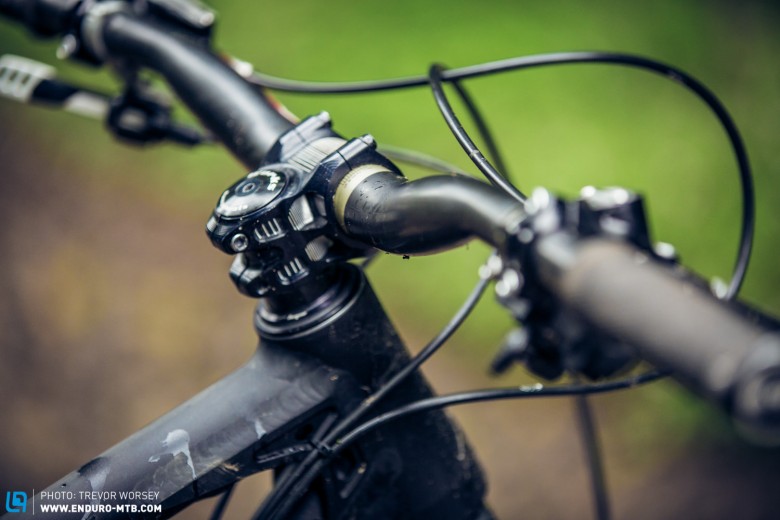
During the setup Chris explained how a shorter stem is crucial to correct body positioning, and how the slacker head angle can be of benefit in every corner: even the tight ones! The slack angle provides a smoother arc while cornering, on steeper bikes the front wheel can tuck underneath the rider losing grip and control. Imagine a straight line from the center of the bottom bracket to the center of the bars, Chris believes this is the most important distance for correct set up. Chris compared this line in the Geometron to a ‘conventional’ large sized enduro bike, and to our surprise the distance was actually quite similar. The ‘normal’ bike however had a large stack of spacers under the stem and a 60mm stem to compensate for the shorter reach.
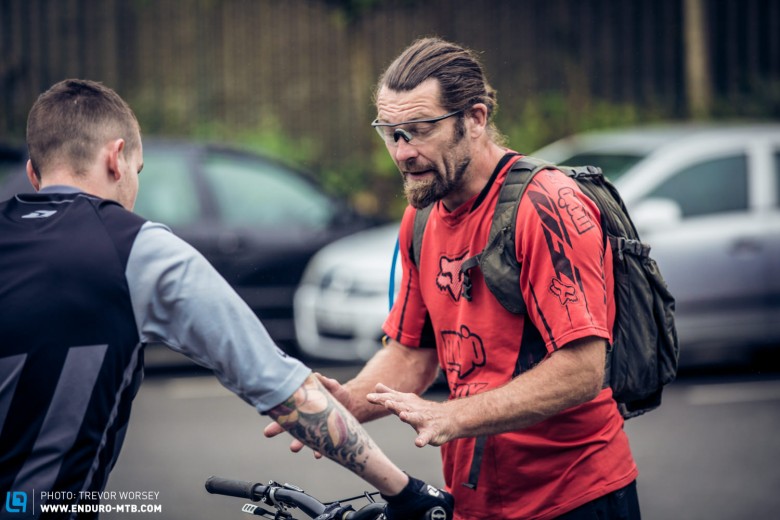
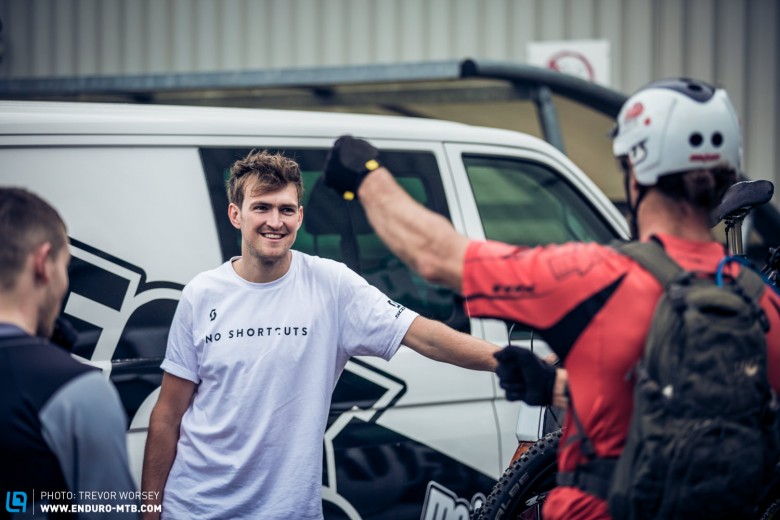
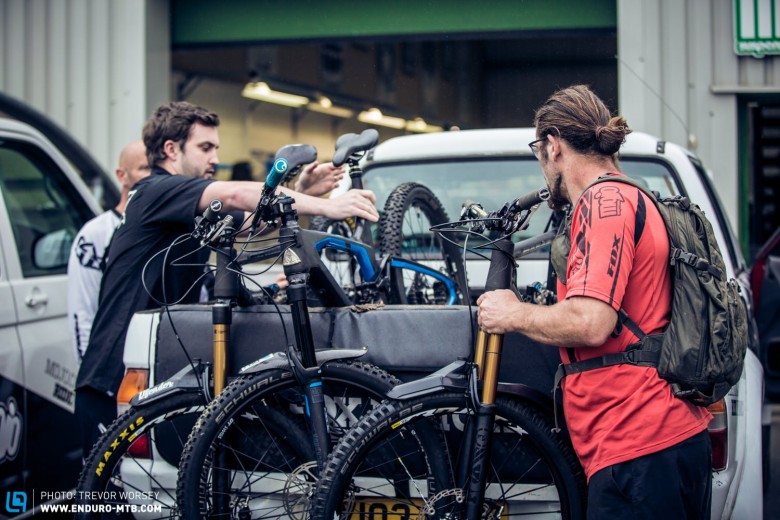
The Geometron is offered with a pro set-up package, where Chris tailors the bikes to the rider’s individual needs; the head angle, bottom bracket height and even rear travel can all be changed to suit the rider. If the rider planned to ride mainly rocky terrain Chris would lift the bottom bracket and fit shorter cranks to improve clearance, for faster downhill tracks he would lower the bottom bracket and fit a shock with a longer stroke also increasing the rear wheel travel. For wet conditions he recommends lifting the rear end slightly to get more weight over the bars and in turn slightly steepening the head angle. Chris emphasises how the geometry is ‘what it needs to be’ continually tested and re-evaluated against the stop watch.
The sag was set up 33% on the rear and 25% up front, after a quick car park test with a few hops Chris observed to see how balanced the bike looked, he then tweaked the compression a few times until he was happy the bike and rider were looking comfortable.
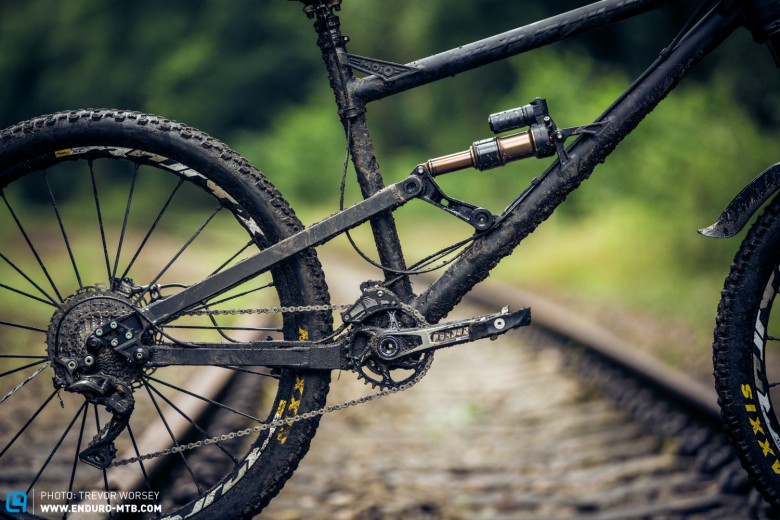
First impressions of the bike were surprising, “has this really got a 63 degree head angle?” “Are you sure the reach is that long?” “That fork can’t be 180mm?” Our preconceptions were blown out of the window. We were expecting a barge of a bike, but the steep and forward seat tube gave a nice position on the bike and it certainly didn’t feel excessively long or hard to turn. It also didn’t feel wallowy or excessively high with the 180mm fork. It was harder to manual with the low bottom bracket but that was overcome with more effort.
Climbing
We were riding at Machen in South Wales just a stone’s throw from Mojo HQ, it was raining and we were greeted by a long, steep, rocky and slippy climb. We were expecting to run out of traction or wheelie on some of the short punchy climbs, the Geometron however did neither. The steep seat angle kept the riders weight more forward than conventional designs stopping the front end from lifting. All of the riders weight was held over the rear wheel getting that important traction.
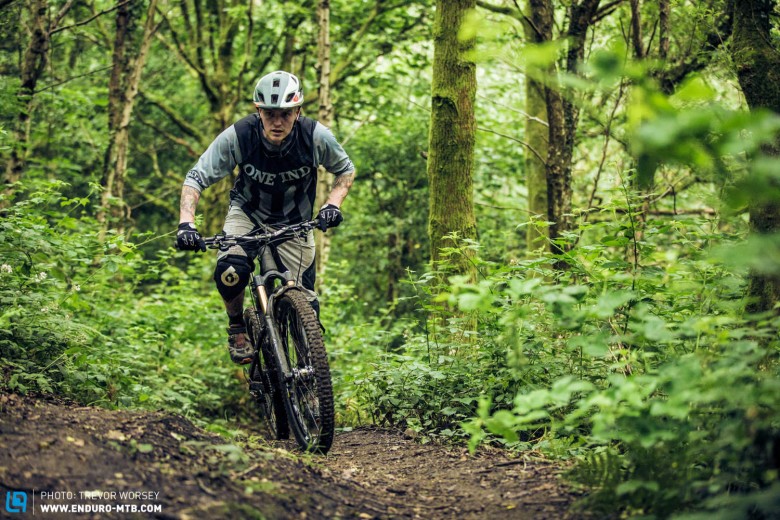
It was a strange experience which needed a change of riding technique, instead of trying to keep up speed and push hard on the pedals you needed to slow down and keep your legs turning slowly and smoothly just like a tractor.
Descending
With it’s long geometry the bike was always going to be a good descender and it certainly didn’t disappoint. On the high speed sections it was super planted and in control thanks to the long wheel base. The linkage is progressive, giving plenty of support through the rough terrain with excellent small bump sensitivity. As things started to get bit a slower and tighter it still descended just as impressively, sitting inside the bike rather than on it, hitting lines with pinpoint accuracy. Again it needed a slight change in riding technique, a little slower into the turns but faster out, more like you would ride a downhill bike. The trails were slippery and with a less than ideal rear tyre it was still finding good grip.
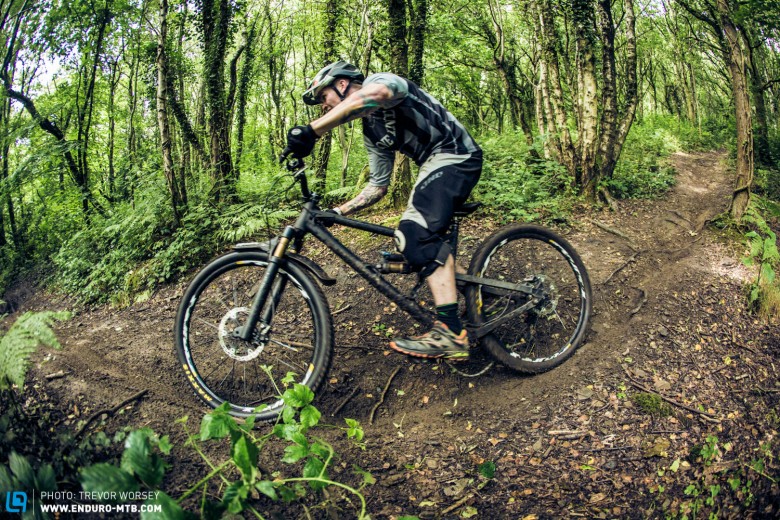
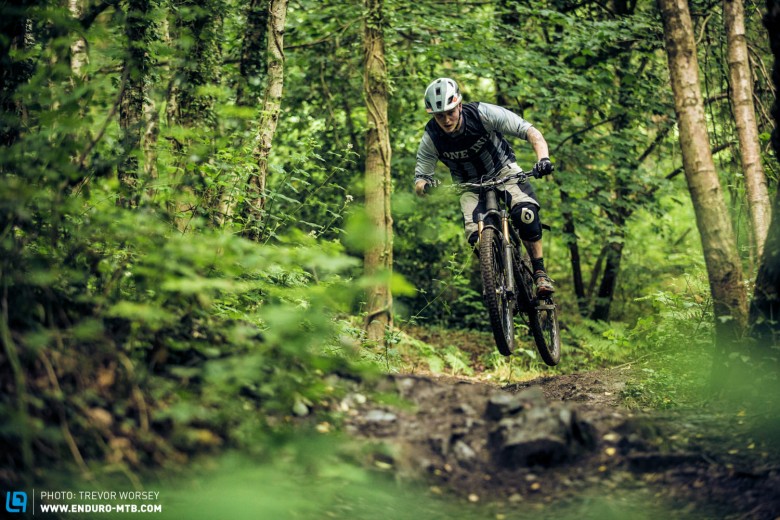
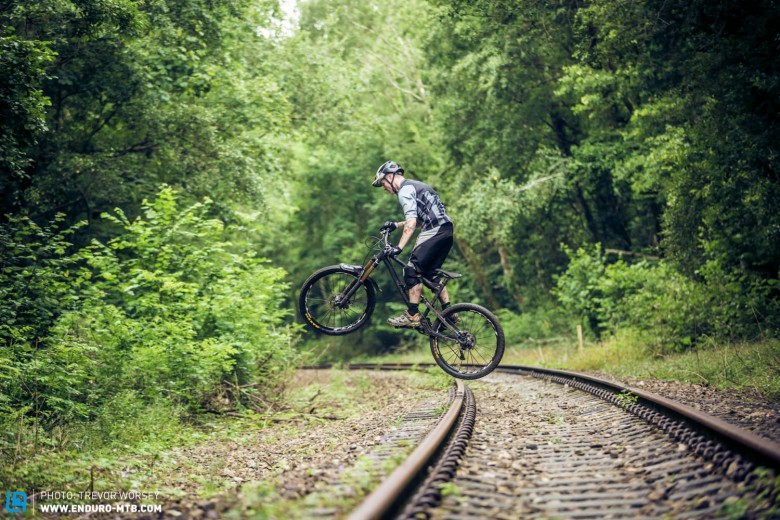
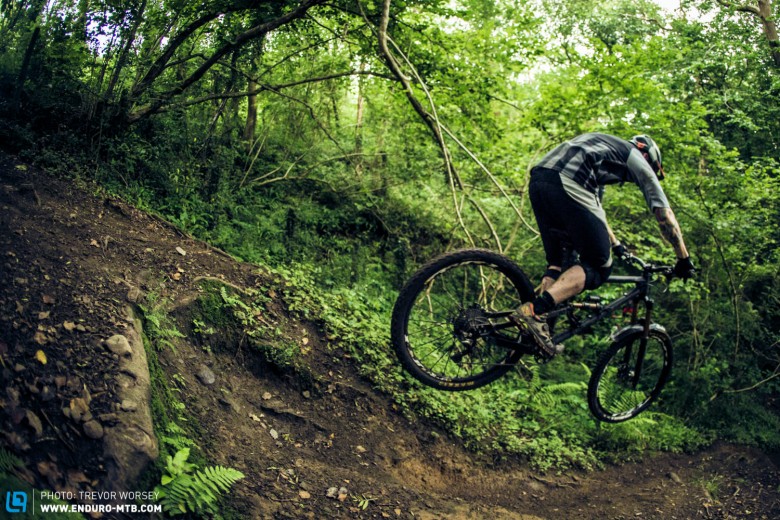
The Geometron has 155mm rear wheel travel which, thanks again to the progressive linkage and the FOX Float X, felt bottomless. The rear travel is balanced amazingly by the 180mm FOX 36, offering great support and control. The bike felt poppy and a real blast to ride, our testers found themselves hopping off everything, something they really weren’t expecting from a bike this long. The Geometron isn’t going to be as light as other high-end carbon bikes: Chris claims the extra weight can be an asset in the rougher sections and helps contribute to its planted feel, but we would have to do some full day rides to find out if it proves too weighty. We only had limited time on the bike riding unfamiliar tracks in slippy conditions so cannot draw hard conclusions. Is it faster than a conventional enduro bike? The jury is still out on that one, but we hope to be riding the Geometron again on some home dirt to find out.
Bottom Line
The Geometron is like heavyweight boxer Muhammad Ali, its big, heavy and intimidating, but fast as hell. On paper, ‘convention’ would say that it simply shouldn’t work, too long, too slack – but the Geometron floats like a butterfly. There’s far more going on here than just a slack head angle and It surprised our testers with its nimbleness. This in one of the most exciting bikes to date as if Chris Porter is doing it right, then everyone else is doing it wrong!
For more information on the Geometron, you can find out more on their website
Words: Andrew Cooper Photos: Trev Worsey
Did you enjoy this article? If so, we would be stoked if you decide to support us with a monthly contribution. By becoming a supporter of ENDURO, you will help secure a sustainable future for high-quality mountain bike journalism. Click here to learn more.



